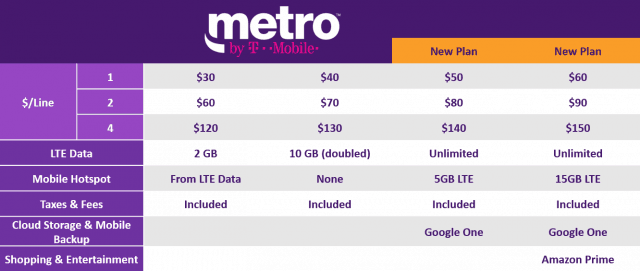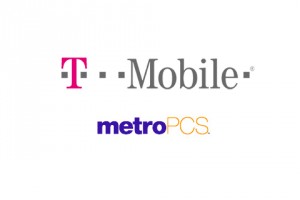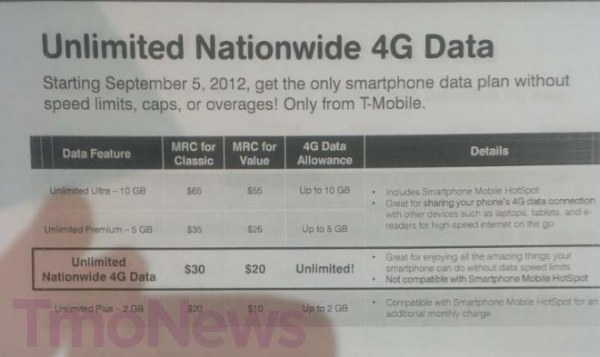MetroPCS is getting a new name and new unlimited plans as its owner T-Mobile rebrands the provider “Metro by T-Mobile” starting today.
Current MetroPCS customers are largely attracted to the carrier for its simple, budget-priced mobile plans that offer 2-10 GB of data for $30-40 a month. In an effort to boost average revenue per customer, Metro will introduce two new plans that offer “unlimited” LTE data, mobile hotspot usage with data allowances from 5-15 GB, Google One cloud storage and mobile backup, and for its $60 plan, Amazon Prime membership:

T-Mobile USA John Legere argues that Metro’s new plans will change the perception that prepaid wireless plans are lacking.
“In the past, being a prepaid customer meant subpar devices, service and coverage. No more,” a press release from T-Mobile says. “Metro has been quietly changing the prepaid landscape for years, and wireless users have noticed. In the past five years, the number of people choosing Metro has doubled. Metro by T-Mobile offers a wide variety of both Android and iOS smartphones for every price point, including the absolute latest releases.”
The carrier, formerly an independent provider with its own cellular network serving 15 cities, was acquired by T-Mobile five years ago and today is run like a mobile virtual network operator (MVNO) on T-Mobile’s nationwide network. The company takes care to protect its lucrative base of T-Mobile postpaid customers by giving them absolute priority on T-Mobile’s network. If a cell tower becomes congested, Metro customers will be the first ones to feel the impact.
“When the network gets busy in a particular place, Metro by T-Mobile customers may notice a difference in speed compared to T-Mobile customers, but otherwise, they get the same T-Mobile network,” T-Mobile warns in its press release. In the fine print, T-Mobile also discloses it throttles speeds for unlimited customers using more than 35 GB of data per month until the next billing cycle begins. It also limits video streaming to 480p resolution all the time.
In an effort to differentiate itself from similar prepaid offers, Metro has teamed up with Amazon to give its premium plan customers a free month-to-month membership in Amazon Prime, which in addition to free two-day shipping, also bundles Amazon Prime Video, Music, and Photos.
T-Mobile CEO John Legere introduces a makeover of MetroPCS, now called Metro by T-Mobile. (3:03)


 Subscribe
Subscribe






